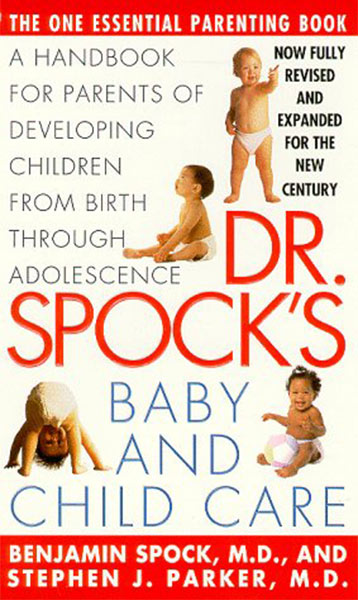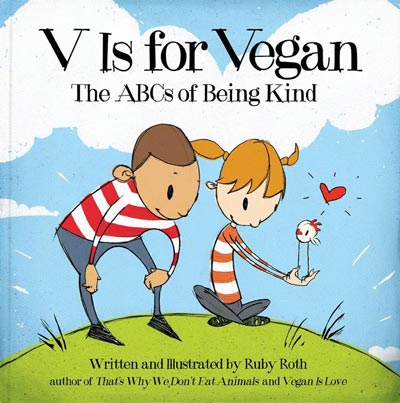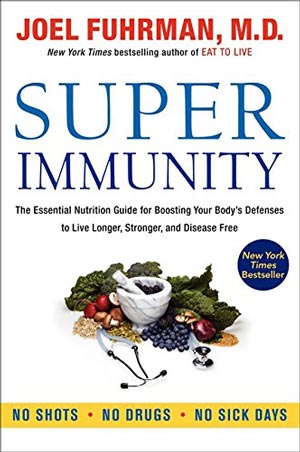Dr Benjamin Spock is arguably the most influential paediatrician of all time.
Generations of parents relied on his advice for raising their kids. His landmark book, Baby and Child Care, was, for its first 52 years, the second best-selling book in the United States after the Bible.
From breast-feeding to injury prevention and learning development to diaper rash, Dr Spock was the go-to doctor for the latest advice based on the most up-to-date scientific research.
Then, in his 7th and the last edition before his death in 1998, he sent a shockwave through the nutritional community.
Dr Benjamin Spock recommended that children be vegetarian until age two and vegan after that.
Why Did Dr Spock Recommend Veganism?
It was simply the case that nutritional research had tipped in favour of a plant-based diet over a meat and dairy based diet.
In fact, had it not been for a vegan diet, Dr Spock would have probably never made it to write this last edition.
Hi wife, Mary Morgan, has stated that his declining health had rebounded after he switched to a plant-based diet in 1991, aged 88.
This “enabled him to revise his book before he died, which was his most important goal.”
Dr Spock’s co-author of the Baby and Child Care book, Dr Steven J. Parker, told the New York Times that Spock's vegetarian diet had “given him a new lease of life” and that he wanted the latest issue of his book to be “in the forefront” of demonstrating the link between animal-based foods and disease.
What Did Dr. Spock Advise for Children?
I have a copy of the 7th Edition of Baby and Child Care, and what follows are extracts from the book.
On Nutrition
In the past few decades, we have learned quite a lot about how to use nutrition to help children stay healthy. We used to think of vegetables, grains, and beans as side dishes.
We kept meat and dairy products as our favourite foods, and we were not particularly concerned about fat and cholesterol in children's diets.
We now know better. Research shows us very clearly that vegetables, grains, beans, and fruit should take centre stage. They provide the nutrition children need to grow and avoid the cholesterol in animal fat that can cause so many problems.
On Cow's Milk
I no longer recommend dairy products after the age of two years. Of course, there was a time when cow's milk was considered very desirable. But research, along with clinical experience, has forced doctors and nutritionists to rethink this recommendation.
It is an area where there are still disagreements among scientists, though there are several points that most everyone agrees on.
First of all, other calcium sources offer many advantages that dairy products do not have. Most green leafy vegetables and beans have a form of calcium that is absorbed as well as or even a bit better than that in milk.
Along with this calcium come vitamins, iron, complex carbohydrates, and fibre, all of which are generally lacking in cow's milk.
Calcium enriched soya rice is just as tasty and cereals cows milk, and it has no animal proteins, animal fats, milk sugars, or dairy contaminants.
At first it may be surprising to learn of the range of problems that dairy products can cause. The best known, of course, relate to fat and cholesterol.
While milk and yoghurt are available in low-fat versions, most cheeses, ice cream, and other dairy products are very high in fat, and it is the wrong kind of fat. The essential fats that are needed for brain development are found in vegetable oils. Milk is very low in these essential fats and high in the saturated fats that encourage artery blockage and weight problems as children grow.
There are other concerns about dairy products, too. Concerns that relate even to low fat products. Dairy foods can impair a child's ability to absorb iron and can cause subtle blood loss from the digestive tract in small children.
These problems, combined with the fact that milk has virtually no iron of its own, can lead to iron deficiencies.
Paediatricians often find that certain health problems are aggravated, or even caused, by milk products. These include asthma and other respiratory problems, chronic ear infections, and skin conditions.
The reason is not necessarily an allergic reaction. Exactly why these problems occur is not known. Nonetheless, removing dairy products from the diet often eliminates them.
Finally, as children grow up many would develop stomach aches, bloating, diarrhea, and gas caused by the milk sugar, lactose. These symptoms are not abnormal. They are simply a result of the fact that the ability to digest milk sugar disappears for many people in late childhood.
In nature, animals do not drink milk after infancy, and that is the normal pattern for humans, too. Vegetables and legumes provide a healthy source of calcium, along with many other nutritional advantages, and they really make milk consumption unnecessary.
Dr Spock goes into further detail on milk on page 346, noting the following
We used to think of cows milk is a nearly perfect food. However, over the past several years, researchers have found information is because many of us to change your opinion. This has provoked a lot of understandable controversy, but I've come to believe that cow's milk is not necessary for children.
…The proteins in cow's milk are an occasional cause of colic in infants. Now researchers are studying the links between cow's milk proteins and child onset diabetes; at the present time, this association is uncertain.
Some children have sensitivities to milk proteins, which show up as ear problems, respiratory problems, or skin conditions. Milk also has traces of antibiotics, estrogens, and other things a child does not need.
There is, of course, nothing wrong with human breast milk. It is perfect for infants.
On Meat, Poultry, and Fish
Most families have become more conscious about the fat content of meats, many are choosing the lower fat cuts. The healthiest diets of all, however, go a step further and get their nutrients from beans, grains, vegetables and fruits, rather than from meats.
Children can get plenty of protein from beans, grains, and vegetables, and when they do, they avoid the animal fat and cholesterol found in meats.
Unfortunately, switching from red meat to chicken does not help very much.
Chicken actually has just as much cholesterol as beef, about hundred milligrams of cholesterol in a 4-ounce serving and almost as much fat. Researchers have also learned that the cancer-causing chemicals that form in cooked beef also tend to form in chicken.
Children who grow getting their nutrition from plant foods rather than meats have a tremendous health advantage. They are less likely to develop weight problems, diabetes, high blood pressure, and some forms of cancer.
There are other reasons why families are looking more favourably at plant-based choices.
In recent years, the prevalence of disease-causing bacteria in meat, poultry, and eggs has risen sharply, which is why health authorities insist that these products be carefully handled and thoroughly cooked, if they are used at all.
Meatless meals also help your child to keep stronger bones.
Children stay in better calcium balance when the protein comes from plant sources. My siblings and I were given no red meat until 12 years of age, and we were all oversize and healthy. We should have continued to avoid meat through adolescence and adulthood.
Many families are gradually changing their diets as they come to learn of the advantages to doing so.
If you're still serving meats regularly, you will want to try as many meatless meals as possible, explore new cookbooks, and experiment with new products take the place of meats. Some of these, such as meatless burgers and meatless hotdogs, are in the freezer case of your grocery or health food store.
I have personally been on a non-dairy, low-fat meatless diet since 1991 when I was 88 years old. Within two weeks of beginning this diet, my chronic bronchitis went away after years of unsuccessful antibiotic treatments.
I have several middle-aged and older friends who reported heart disease by eliminating dairy products, meats, and other high saturated fat foods from the diet. To achieve this kind of success, it's important to substitute whole grains and a variety of vegetables and fruits and to become more active.
On Vitamin B12
A reliable source of vitamin B12 is needed for healthy nerves and blood cells. It is not made by plants or animals but by bacteria. In less developed countries, traces of bacteria in the soil or plants provide B12, but in the modern world, these are not reliable sources.
Animal products contain B12 formed by bacteria in animals’ intestinal tracts, but the fat and cholesterol they contain make them undesirable.
Good sources include fortified products such as soy milk or cereal (check the label for cobalamin or cyanocobalamin, which are vitamin B12's technical names). Probably the most convenient source is any common children's multivitamin. They contain more than enough vitamin B12.
On Vitamin D
Your child needs vitamin D to help build strong bones. Normally, it is formed in the skin by the action of the sun and is then stored in the body. 15 minutes of sun on the face and hands each day will provide enough vitamin D for the body's needs.
However, children in northern climates and those who tend to stay out of the sun may not get enough vitamin D from the sun alone. Fortified cereals contain vitamin D, and all common children's multivitamins provide enough vitamin D, without the risk of excess.
On Iron
Iron can be obtained in quantities sufficient for normal growth and development from vegetable sources (especially broccoli, collards, and squash) and beans (especially soy, navy, and Great Northern) without overloading the child with the saturated fat found in most meats and dairy products.
Babies begin to need more iron for their red blood cells around the middle of the first year, because with their rapid growth, they begin to deplete the limited supply that was in the bodies of birth. Since cow's milk contains practically no iron, infants who consume lots of milk, often eating little else, may become profoundly anaemic.
That's why it's important to seek out fortified cereal for your infant and use an iron-fortified formula if you are bottle feeding.
It has recently been found that breast milk, though it contains very little iron, contains a form of iron that is unusually well digested and absorbed. Breast milk contains sufficient iron for the first six months of the baby's life.
On Vegetarian Diets
A vegetable-based diet for children is generally more healthful than a diet containing the cholesterol, animal fat, and excessive protein found in meat and dairy products. But a vegetarian diet should not be a low-calorie diet.
Calories should come from a broad variety of leafy green vegetables, fruits, whole grains, beans, and bean products. Studies have shown a well-balanced vegetarian diet has many advantages and does not interfere with a child's growth and development.
A reliable vitamin B12 source such as a children's vitamin or cereal or soya milk fortified with B12 is recommended for vegetarians. Children and adolescents will get plenty of protein, as long as they eat a variety of whole grains, legumes, vegetables, fruits, and nuts.
If you are a strict vegetarian (vegan), you can still get plenty of calcium. Non-dairy calcium sources include green leafy vegetables, beans, and calcium fortified soy milk and orange juice.
——————-
Dr Spock goes on to discuss the importance of vegetables and that in the first year spinach, peas, onions, carrots, asparagus, chard, squash, tomatoes, beets, celery, and potatoes should all feature regularly on a child's plate.
He also discusses temporary substitutes for vegetables – if a child is refusing vegetables – noting that various fruits also supply many of the same minerals, vitamins, and fibre content.
Additionally, whole grains also offer some proteins and many of the vitamins and minerals found in vegetables. Although this should not be a permanent solution for substituting vegetables; a well-balanced mix of both is essential to a healthy diet.
Backlash and Subsequent Baby and Child Care Editions
Dr Benjamin Spock's recommendations did not sit well with supporters of the meat and dairy industries, including the medical institutions that benefit from their funding.
Some speculated that Dr Neal Barnard, president of the Physicians Committee For Responsible Medicine, who had helped Dr Spock draft the section on nutrition, had forced his hand.
It will come as no surprise to those in the know that the higher powers tried to smear this sincere man for telling the truth.
His wife disputed this, anyway, stating that Dr Spock edited Dr Barnard’s draft to give it “his personal touch.”
Dr Spock was a maverick in his field, a revered professional who had written six previous editions of the Baby and Child Care book. He had devoted his entire life to studying the scientific literature and priding himself on providing the most informed information possible to parents.
There is simply no way that he would allow his last ever edition to be written in a way that he didn't agree with. This was his legacy. This was his final word.
As a parent who has raised a vegan child from birth, I, like many others, am so grateful to Dr Spock for his transparency and having the guts to go up against big meat and big dairy and get the truth into the hands of parents.
Dr Spock paved the way for the plant-based revolution that has improved the health of millions worldwide.
Sadly, though, subsequent editions of the book have been somewhat “hijacked”. Dr Benjamin Spock's advice on vegetarian and vegan diets has been dialled down.
The proceeding editions, although keeping to Dr Spock's recommendation of no dairy products after aged two, claim that in terms of nutrition there is “no one right answer” that is best for everyone.
The books discuss vegan diets and do not discourage them, but do not advise against meat and actively encourage the “food pyramid”.
In Summary
Dr Benjamin Spock was always ahead of his time, or, put more bluntly, was one of the few doctors that endeavoured to keep abreast with the latest nutritional research. This is something sadly lacking in modern medicine.
Despite Dr Spock having passed away over 20 years ago, his recommendations from 1998 are still way ahead of many family doctors today. There are far too many doctors who don’t keep up-to-date with the medical literature or attend the necessary conferences and seminars they should to become better informed on nutrition.
Indeed, many doctors are only given a handful of hours of nutritional study time during their qualifying years. The only thing that has really changed in the recommendations Dr Spock gave in his final edition of the Baby and Childcare Book is that there is now even more evidence to backup his words.
Indeed, the advice now is that parents can raise their child on a vegan diet from birth, rather than vegetarian until two years old.
Indeed, the American Dietetic Association, the nation’s largest organization of food and nutrition professionals, states the following:
Well-planned vegan diets are appropriate for all stages of the life cycle and satisfy nutrient needs of infants, children, and adolescents and promote normal growth.
Please note:
I have used my copy of the book to reproduce the text in this article. I do not have the publisher's permission to do this but I believe that this appropriation of Dr Spock's work constitutes fair use.
I am hoping that in the interest of Dr Benjamin Spock's legacy and in the interest of helping parents who want to raise their children as vegetarians or vegans, that the current copyright holders will agree to let me keep this article live on my website.
In light of the above, I encourage you to buy a copy of the 7th Edition of Baby and Child Care, and to buy a copy of one of the newer editions.






Leave a Reply